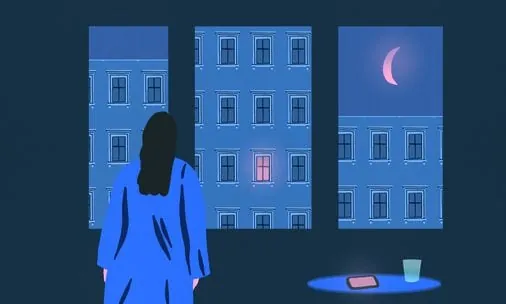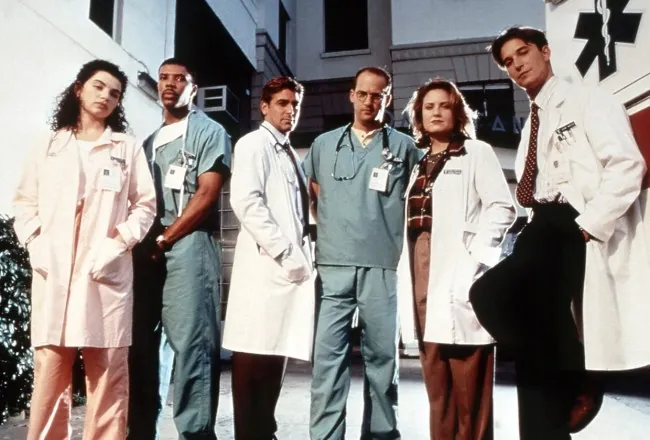
Unlocking the Secrets of Sleep: Health Risks, Expert Strategies, and Surprising Science
2024-09-23
In today's fast-paced world, sleep deprivation is becoming alarmingly common. Over a third of Americans report not getting the recommended amount of sleep, increasing risks for chronic conditions like diabetes, hypertension, obesity, and even certain cancers, according to experts such as neuroscientist Steven Lockley from the University of Surrey, UK.
Why Are We Struggling to Sleep?
So, why are we struggling to catch those essential Zs? Experts suggest that while the advent of technology may play a role, it’s not the sole culprit. A review of studies from 1960 to 2013 revealed that people have averaged about the same amount of sleep over the years, regardless of advancements in tech. Intriguingly, research on indigenous communities in Namibia, Bolivia, and Tanzania found that their sleep durations were no longer than those of industrialized societies, averaging 5.7 to 7.1 hours a night. The anxiety surrounding sleep has plagued humanity through the ages—back in 1894, it was reported that modern life’s pace was contributing to widespread insomnia.
Modern Pressures Impacting Sleep
Today, modern pressures—long commutes, child care needs, and demanding jobs—continue to impede our ability to listen to our bodies. Sleep deprivation is particularly alarming among teenagers; a staggering two-thirds of adolescents aged 13 to 18 are getting fewer than the eight to ten hours of sleep recommended by health experts. The CDC highlights that insufficient sleep can negatively impact mental health and behavioral patterns.
Racial and Ethnic Disparities in Sleep Deprivation
Adding to the crisis are racial and ethnic disparities. Underrepresented populations, particularly Black and Pacific Islander adults, face the highest sleep deprivation rates, with nearly 50% expressing a need for more sleep. Neurologist Tom Scammell from Harvard Medical School emphasizes that these disparities deserve urgent attention.
Consequences of Poor Sleep
As we assess our sleep habits, we must acknowledge that poor sleep today can have graver consequences than in the past. Lockley notes, “You wouldn’t have had to worry about drowsy driving 150 years ago.”
Recommendations for Sleep Duration
The American Academy of Sleep Medicine maintains that adults should aim for at least seven hours of sleep nightly. However, Lockley warns that one must spend more than seven hours in bed to accommodate natural awakenings throughout the night.
Misunderstanding Sleep Deprivation
Interestingly, many individuals struggling with sleep may not even realize they are sleep-deprived. Scammell shares that self-assessment can often fall short, with habitual coffee drinkers and those reliant on afternoon naps failing to recognize their fatigue levels. Lockley supports this, citing studies showing that those deprived of sleep often underperform on cognitive tests without awareness of their compromised abilities.
The Need for Diagnosis in Sleep Disorders
For those suffering from severe sleep apnea—a condition characterized by disrupted breathing during sleep—well-being in waking hours might be mistaken for good sleep quality. Andrew Wellman from Brigham and Women’s Hospital recalls a patient who believed they slept well despite conflicting assessment results revealing significant disturbances during the night. The key takeaway? Heavy eyelids during the day could signify more significant sleep issues than simply feeling "fine."
Effective Treatments for Insomnia
Fortunately, effective treatments for insomnia extend beyond medications—which can lead to side effects like cognitive impairment and dizziness. Cognitive Behavioral Therapy for Insomnia (CBT-I) has proven to be just as effective, if not more so than sleeping pills, without the associated risks. While finding a CBT-I practitioner can be challenging, innovative apps like Sleepio have emerged to assist users even without professional help.
Establishing Healthy Sleep Habits for Children
When it comes to children, creating healthy sleep habits—like dimming the lights in the home and limiting screen time before bedtime—has shown promise. Additionally, the alarming rise in the use of melatonin among children—ranging from 6% of preschoolers to nearly 20% of older children—raises red flags, especially given the lack of research surrounding long-term effects.
Understanding the Sleep Cycle
Understanding the human sleep cycle involves acknowledging the roles of both your sleep drive, which tracks the time since your last sleep, and your body’s circadian rhythm, regulated by light exposure. Lockley reveals that even brief exposure to bright light can shift this internal clock, with blue light—emitted from digital screens—playing a significant role in disrupting melatonin production, delaying sleep.
The Evolution of Sleep
Looking back on the evolution of sleep, it might surprise many that sleep is likely older than humanity itself. Biologist Irene Tobler's pioneering work in the 1970s revealed sleeping behaviors in creatures as diverse as cockroaches to jellyfish. This suggests sleep may have deep evolutionary roots, serving vital functions beyond mere cognitive maintenance—like preserving cardiovascular health and preparing the body for wakefulness activities.
Conclusion
Next time you slip under the covers, remember that sleep isn’t just a personal necessity; it’s a timeless, mysterious practice, deeply rooted in our biology and crucial to our survival. Join the sleep revolution by embracing better habits for a healthier, happier life!


 Brasil (PT)
Brasil (PT)
 Canada (EN)
Canada (EN)
 Chile (ES)
Chile (ES)
 España (ES)
España (ES)
 France (FR)
France (FR)
 Hong Kong (EN)
Hong Kong (EN)
 Italia (IT)
Italia (IT)
 日本 (JA)
日本 (JA)
 Magyarország (HU)
Magyarország (HU)
 Norge (NO)
Norge (NO)
 Polska (PL)
Polska (PL)
 Schweiz (DE)
Schweiz (DE)
 Singapore (EN)
Singapore (EN)
 Sverige (SV)
Sverige (SV)
 Suomi (FI)
Suomi (FI)
 Türkiye (TR)
Türkiye (TR)